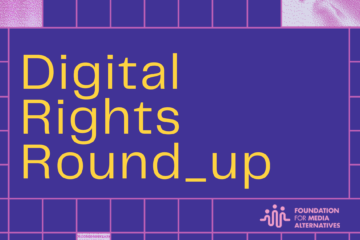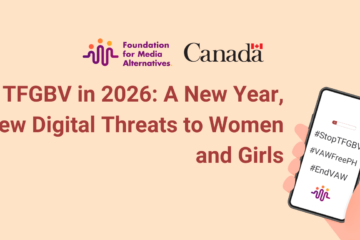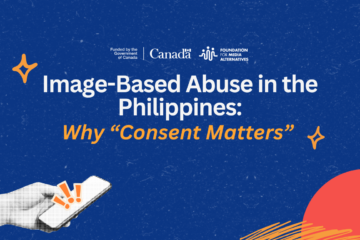Strengthening the digital rights movement in the Philippines
This blog was written by Dianne Olivan, one of the participants of FMA’s Digital Rights Camp held on May 2019.
From May 28 to June 1, 2019, the Foundation for Media Alternatives organized a gathering of journalists, artists, activists, and human rights defenders to reach out and introduce digital rights to advocacy groups in the Philippines.
I attended the 2019 Digital Rights Camp, and I was glad to participate in a productive meeting across sectors, serving as an evolving platform for future collaborations.
Digital rights in the Philippines
The digital rights situation in the country is alarming, as highlighted by recent events – from the Php 4M-worth of Distributed Denial of Service (DDoS) attacks on progressive media outfits and Facebook’s invasive access of personal data that helped Duterte win the 2010 presidential elections to the increasing instances of online harassment against women.
More often than not, mainstream understanding of how the internet works is limited to popular platforms and their respective community standards. With limited awareness of the mechanisms and actors present in cyberspace, there is a need for more comprehensive education.
The government, while making progress through the establishment of the Department of Information and Communications Technology (DICT) and dedicating a commission to secure its citizens’ privacy, is still developing a more holistic framework to protect digital rights. These growing pains signal the need for stronger and more consistent campaigns from civil society.
The camp

The camp aimed to introduce digital rights to more members of the local human rights field. Through open space facilitation, which allows participants to collectively steer their own learning experience, we were even given the power to propose or attend any session that reflected our goals for participating.
Discussions on gender, a feminist internet, misinformation, and disinformation were productive, as they presented the possibility of having a spectrum of positions, enabling participants to have a more elaborate understanding of the environment and motivations of others. It proved the space effective in securing a diverse set of participants that produced insightful discussions and, hopefully, collaborations.
While there had been local efforts organized to tackle digital rights, more often than not, these spaces have limitations in tapping other sectors and groups. While a large percentage of my co-participants stated that they did not have prior knowledge of digital rights, a good number of us are keen on setting up platforms for collaborations to serve our communities.
My co-participants were teachers, technologists, journalists, filmmakers, artists, and activists whose untapped skills and talents have the potential to benefit the expanding digital rights movement not just in the country, but in the region as well.
Next steps
We need more events like the FMA Digital Rights Camp that involve and breed young digital rights advocates in the country, whom we hope to work with on more promising partnerships, projects, and networks.
In the same spirit, EngageMedia will organise Coconet II: Southeast Asia Digital Rights Camp in October, and we hope to highlight that while there is a need for a unified global and regional network, there is also an evolving and even stronger need for local collaborations.
Coconet II will be held in the Philippines, and we at EngageMedia seek to involve key digital rights advocates, artists, campaigners, technologists, journalists, filmmakers, lawyers, and human rights defenders in the region. Together, we hope to build a stronger Philippine digital rights movement.
About the contributor
Dianne Olivan works for EngageMedia as a project assistant. Her role is to ensure efficient and effective collaboration with partners for initiatives related to Digital Rights and Video for Change. She also provides logistical, outreach, and research support for both of the programs.



0 Comments